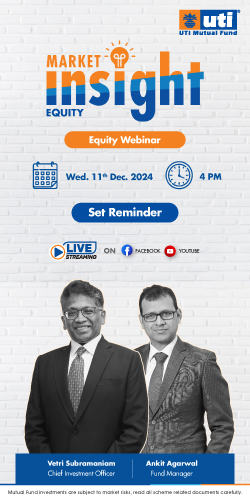Financial advisors need to know their target audience, provide value, adopt technology and raise their bar in order to stay ahead of the game. This was the consensus of a panel consisting Monika Halan, Editor, Mint Money, Ajit Menon, EVP, Head – Sales & Co-head Marketing, DSP BlackRock Investment Managers, Keerti Gupta, Chief Operating Officer, Birla Sun Life AMC, Kamala K, Head - Mutual Funds, NSE and Rajesh Krishnamoorthy, Managing Director, iFAST Financial which deliberated on ‘compliance and regulatory challenges’ facing MF distributors at the Council of Financial Planners (COFP) India 2015 Annual Convention held in Bengaluru recently.
Charging fee from clients continues be a major battle for a majority of financial advisors in India. Investor resistance to cough up fee is often cited as the main reason for slow take off of fee based advisory in our market. When asked about whose responsibility is it to raise awareness about paying fee to advisors, Monika Halan observed that the wealth management space has got off on a wrong foot as majority of advisors have been dependent on in-built commissions from manufacturers. “It is nobody’s responsibility to create awareness about paying fee to financial advisors. Consumers understand that they need to pay fee to doctors. Nobody tells them that they have to pay fee. Similarly, consumers need to see value in advisors services for them to pay fee. Advisors should set a precedent by charging fee and be pioneers.”
Rajesh Krishnamoorthy pointed out that the Indian regulators can take a cue from UK’s financial sector regulator Financial Services Authority (FSA). From 2013, IFAs in UK are not allowed to get any commissions from companies. Also, IFAs were required to undergo new tough examinations to be able to continue their practice. “FSA had published a four page document which talks about Retail Distribution Review (RDR) and why consumers need to pay fee to advisors. Once the regulator says that consumers have to pay for advice, it triggers a conversation among investors that they have to pay and they are mentally prepared to pay a fee. Moreover, FSA gave three years’ time for distributors to adjust to the new model,” said Rajesh.
The need to charge fee has become even more necessary after the entry load ban and cap on upfront commissions. “The issue of charging fee from clients is a global problem and advisors who have got their proposition right and show value to clients can easily command fee from clients. I engage the services of a financial advisor and pay fee,” said Ajit.
To build a robust practice, Ajit stressed on the need for IFAs to equip themselves for any uncertainties of the future, especially by charging fee from clients. “You need to decide whom you wish to target and prepare your business model accordingly,” advised Ajit.
Monika observed that unlike earlier, distributors now need to invest capital in their business. “Advisors can’t expect to make money from day one because they have chosen to be entrepreneurs. Advisors need to invest in their business. The initial few years are bound to be tough and advisors need to be prepared for this.”
Compliance
The regulatory changes have resulted in increased cost for advisors. Rajesh Krishnamoorthy said that advisors need to factor in the cost of compliance in their business. “The cost of complying with Retail Distribution Review was 2.6 billion pound over five years in UK. You can’t ignore regulations. In order to reduce compliance cost, advisors can look at having a shared infrastructure.”
Keerti Gupta, COO, BSLAMC said that AMCs have tried their best to help distributors ease compliance cost and ease operational difficulties.
Direct
When the floor was opened for questions, Ramesh Bhat, a Chennai based advisor pointed out to the panel that media often highlights the benefits of investing in direct plans and the amount of money investors can save by bypassing distributors over a 10-15 year period time but media often misses out stressing on selecting the right fund. “If investors chose a wrong fund by bypassing distributors they will end up losing money. Why is no media highlighting this issue?”
Monika Halan responded by saying “There are various messages which go out to investors. Consumers do not go direct just by reading one article. They actually consult at least three people before investing.”
Cafemutual was the online media partner of COFP India 2015 Annual Convention.





